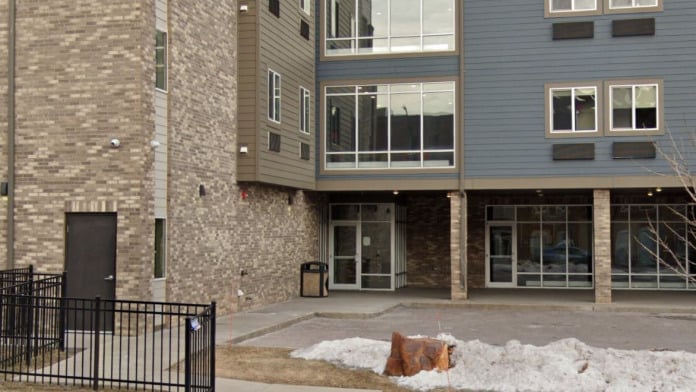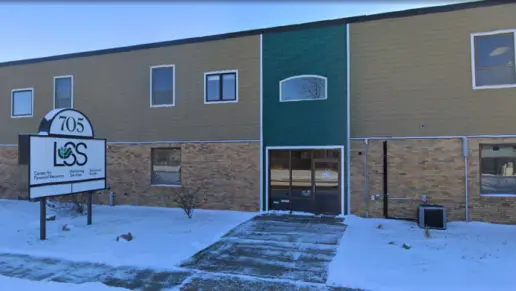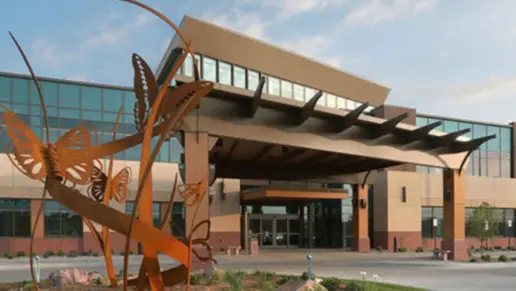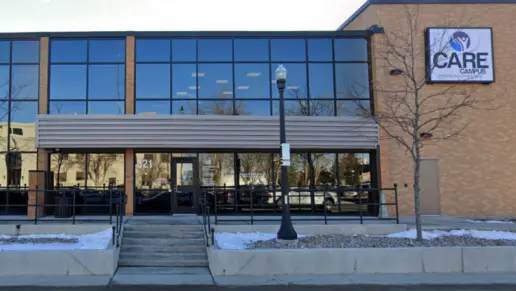Supposedly this place does not have to judge you but support you, I felt judged by the staff all the time I was there, they watched me, and they did not let me do anything. The rules they have are strict but they comply with them as if they were military, it is horrible!
About Arch Residential Treatment Center
Arch Residential Treatment Center, operated by the Carroll Institute, provides inpatient substance use disorder recovery services in Sioux Falls, South Dakota. They specifically focus their treatment on helping those who have co-occurring disorders transition back into the community. The staff strives to provide every individual with a safe, comfortable and supportive environment.
Extended Recovery Services
While a typical stay in residential treatment is 30 days, the facility allows individuals to stay for extended periods to ensure they get the care they need. Counselors will use evidence based treatments to help you achieve sobriety.
Examples of evidence based treatments that may be used to help you include motivational interviewing and cognitive behavioral therapy. Cognitive behavioral therapy is effective at teaching you coping skills to manage your stress in a way that doesn’t involve using substances. Motivational interviewing can help with strengthening your motivation to change your behavior.
You’ll likely also participate in various group counseling sessions during your stay. Group counseling touches on topics such as developing relapse prevention skills and understanding the cause of your addiction. Group therapy gives you a chance to practice your communication skills and receive support and encouragement from your peers.
Treatment in the Heart of Downtown Sioux Falls
Located on West 12th Street, Arch Residential Treatment Center is near all of the attractions that downtown Sioux Falls has to offer. One of the main attractions in the area that you can enjoy is Falls Park. Outside of treatment, you can walk around and appreciate the sight of waterfalls, sculptures and the observation tower.
Rehab Score
Gallery

Location
Other Forms of Payment
Private insurance refers to any kind of healthcare coverage that isn't from the state or federal government. This includes individual and family plans offered by an employer or purchased from the Insurance Marketplace. Every plan will have different requirements and out of pocket costs so be sure to get the full details before you start treatment.
Self-pay involves paying for treatment out of your own pocket. You can use savings or credit, get a personal loan, or receive help from family and friends to fund your treatment. If you don't have insurance or your insurance plan doesn't cover a specific program, self-pay can help ensure you still get the care you need.
Financial aid can take many forms. Centers may have grants or scholarships available to clients who meet eligibility requirements. Programs that receive SAMHSA grants may have financial aid available for those who need treatment as well. Grants and scholarships can help you pai for treatment without having to repay.
Addiction Treatments
Levels of Care
Treatments
The goal of treatment for alcoholism is abstinence. Those with poor social support, poor motivation, or psychiatric disorders tend to relapse within a few years of treatment. For these people, success is measured by longer periods of abstinence, reduced use of alcohol, better health, and improved social functioning. Recovery and Maintenance are usually based on 12 step programs and AA meetings.
Support provided by drug rehab in South Dakota includes social, physical, and emotional aspects. Program participants learn how to meet needs in each of these areas without turning to drugs. The goals of the program are freedom from drug dependency and long-term recovery.
Opioid rehabs specialize in supporting those recovering from opioid addiction. They treat those suffering from addiction to illegal opioids like heroin, as well as prescription drugs like oxycodone. These centers typically combine both physical as well as mental and emotional support to help stop addiction. Physical support often includes medical detox and subsequent medical support (including medication), and mental support includes in-depth therapy to address the underlying causes of addiction.
Substance rehabs focus on helping individuals recover from substance abuse, including alcohol and drug addiction (both illegal and prescription drugs). They often include the opportunity to engage in both individual as well as group therapy.
Programs


Clinical Services
Experiential therapy is a form of therapy in which clients are encouraged to surface and work through subconscious issues by engaging in real-time experiences. Experiential therapy departs from traditional talk therapy by involving the body, and having clients engage in activities, movements, and physical and emotional expression. This can involve role-play or using props (which can include other people). Experiential therapy can help people process trauma, memories, and emotion quickly, deeply, and in a lasting fashion, leading to substantial and impactful healing.
Group therapy is any therapeutic work that happens in a group (not one-on-one). There are a number of different group therapy modalities, including support groups, experiential therapy, psycho-education, and more. Group therapy involves treatment as well as processing interaction between group members.
In individual therapy, a patient meets one-on-one with a trained psychologist or counselor. Therapy is a pivotal part of effective substance abuse treatment, as it often covers root causes of addiction, including challenges faced by the patient in their social, family, and work/school life.
Life skills trainings involve all the skills a person must have in order to function successfully in the world. These include time management, career guidance, money management, and effective communication. Truly successful addiction recovery is based on the ability to not only live substance-free, but to thrive. Life skills teaches the practical necessities of functioning in society, which sets clients up for success in life, and therefore sobriety.
Trauma therapy addresses traumatic incidents from a client's past that are likely affecting their present-day experience. Trauma is often one of the primary triggers and potential causes of addiction, and can stem from child sexual abuse, domestic violence, having a parent with a mental illness, losing one or both parents at a young age, teenage or adult sexual assault, or any number of other factors. The purpose of trauma therapy is to allow a patient to process trauma and move through and past it, with the help of trained and compassionate mental health professionals.
Staff & Accreditations
Staff

Executive Director

Administrative Assistant

Finance & HR Manager

Services Program & Training Manager

Program Manager
Accreditations

The Commission on Accreditation of Rehabilitation Facilities (CARF) is a non-profit organization that specifically accredits rehab organizations. Founded in 1966, CARF's, mission is to help service providers like rehab facilities maintain high standards of care.
CARF Accreditation: Yes
Contact Information
516 W 12th St
Sioux Falls, SD 57104


